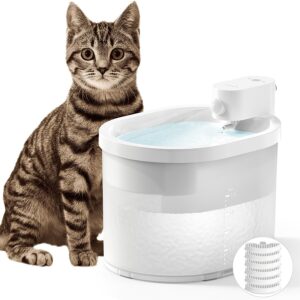The Ultimate Guide to Keeping Your Dog Fit and Healthy!

There are some factors which determine the type of health your dog has, and it does not depend only on a single factor. You may have a plan that if you take care of your dog in a particular way, then he will never get sick, but in reality, it is not the same all the time. In this article, we will discuss some factors which are related to your dog’s health.
Veterinarian
It is crucial that you take your dog to the veterinarian on a regular basis. Vaccines are essential to protect your dog from health problems, rabies being one of them. This is a common as well as a deadly disease, which easily transmitted to animals. At the same time, the vet can also check your dog for ear problems, worms, mouth health and eye disorder.
Breeding
Breeding is said to be one of the essential elements which determine the health of your dog. If there are certain diseases present in the genetics, then it is very common that he will have the risk of coming down with the same. So, if you are planning to purchase a purebred puppy, make sure that you get it from a breeder only after finding his family health history. When it comes to mixing breed puppies, it is not always possible to know about the family histories. But it is advisable that you try your best to find out the family history because it is heartbreaking to watch your dog going through critical health situations and ending up his life in a painful way.
Care
The way you care for your little pet not only affects its physical health but at the same time, it also reflects on his mental health as well. It is essential to look after his diet, ensuring that he gets the right amount of carbohydrates, protein and so on. If you are not sure about the quantity as well as the kind of food you should feed your dog, then go ahead and discuss this with the professionals. Avoid giving chocolate sweets and raisins.
Apart from just watering and feeding your dog, there are many other factors that you need to take care of. Grooming is one of the aspects of dog care. A healthy coat promotes healthy skin. If you nourish the little one with affection and love, it will make him feel mentally stable and secure. So, it is always vital that you spend some quality time and loving moments with your pets. Just like human beings, dogs also need regular exercise to ensure that they stay fit and healthy. Also, exercise will help their muscle grow stronger as well as keep their heart healthier.
There are some things which can take a toll on your dog’s health. Of course, you cannot protect him from everything, but you can reduce the health risks to a certain extent. And following some of the basic precautions can always ensure that your dog stays healthily and safely.
Weight Control
Did you know that an overweight dog will, on average, live for 3 years less than a dog of ideal weight? Obesity can predispose to many health issues such as arthritis and many types of cancer. Keeping your dog at an ideal weight is one of the most important things you can do at home to keep your dog healthy. To check if your dog is an ideal weight, run your hand over their ribs. You should be able to feel the ribs quite easily, but if you were to imagine them shaved you shouldn’t be able to see the ribs clearly.
Vaccinations
For dogs over 10 weeks of age, we recommend two vaccinations against parvovirus, distemper and hepatitis for their primary course.
Dogs that will be meeting other dogs, such as in kennels, groomers, dog training or socially on walks, should also be vaccinated against Canine Cough. We tend to use the term Canine Cough now as most dogs pick up these infections in social environments rather than just in kennels. We will normally use an intranasal Canine Cough vaccine (a vaccine that goes up the puppies nostrils) for puppies so they only need one dose to achieve their initial full vaccination status. When combined with a C3 vaccination, this becomes known as a C5 vaccination. 12 months after completing their primary vaccination course, a booster vaccination against Parvovirus, Hepatitis, Distemper and Canine Cough is needed. After this point, the Parvovirus, Distemper and Hepatitis vaccinations are only needed every three years, while Canine Cough vaccinations are given annually. We strongly recommend your pet has a general health check annually. This is normally done at the same time as the vaccinations, but if your dog is not having Canine Cough vaccines you will need to bring it in for an annual health check each year between C3 vaccines. One of the most common reasons people give for not vaccinating their dog is the cost of the vaccines. This can be a false economy, as treating a Parvovirus infection can cost anywhere between $1500 and $5000. That is a LOT more than a lifetime of vaccinations.
Intestinal Worms
Puppies are prone to severe problems with intestinal worm burdens. They can cause anemia (blood loss), low blood protein and even block the intestine in severe cases. Regular worming is important to keep your puppy as healthy as possible. As such, puppies should be wormed with a high quality intestinal all wormer every 2 weeks until 12 weeks of age, then monthly until 6 months of age. Over 6 months of age they should be wormed every 3 months, which is continued for life.
Author bio: The author of this post is Jack Dsouja, and he is known for being a popular veterinarian. He has vast experience in working as a veterinarian and now recently opened his clinic. He has suggested readers contact with the experts of Primp Play for pet-related services at affordable prices.






